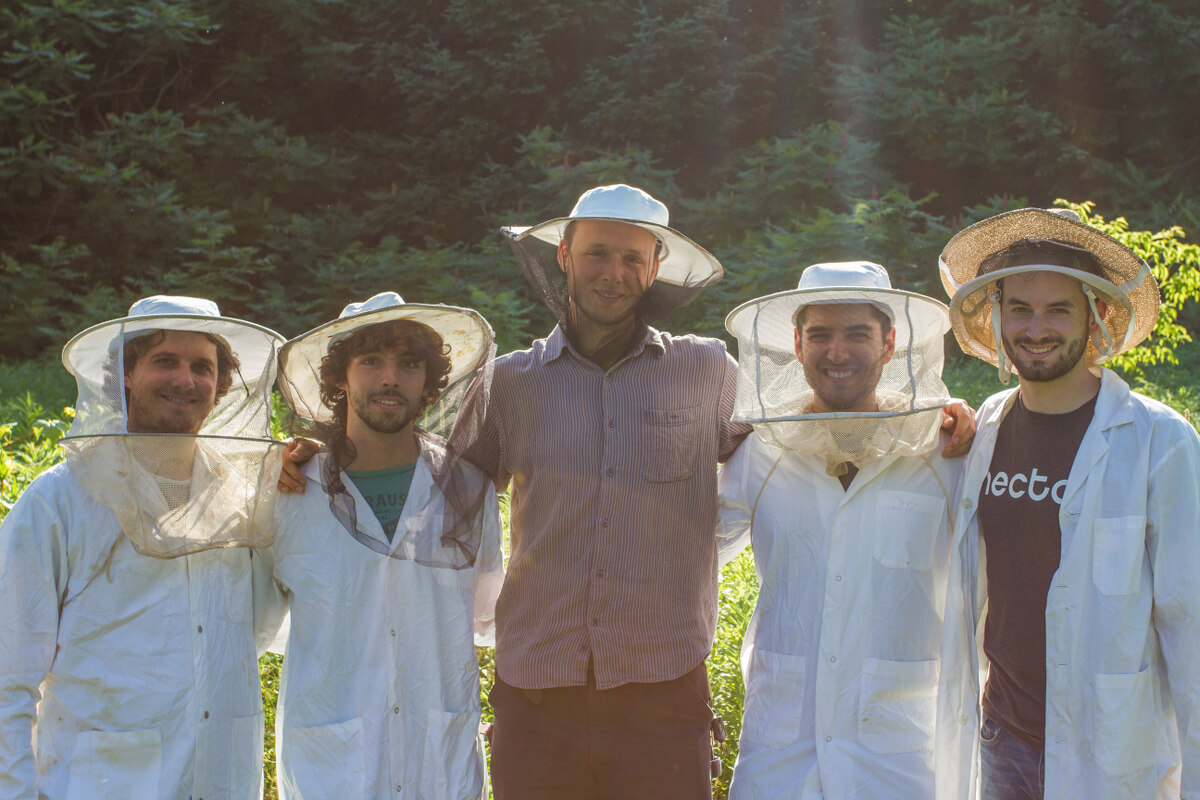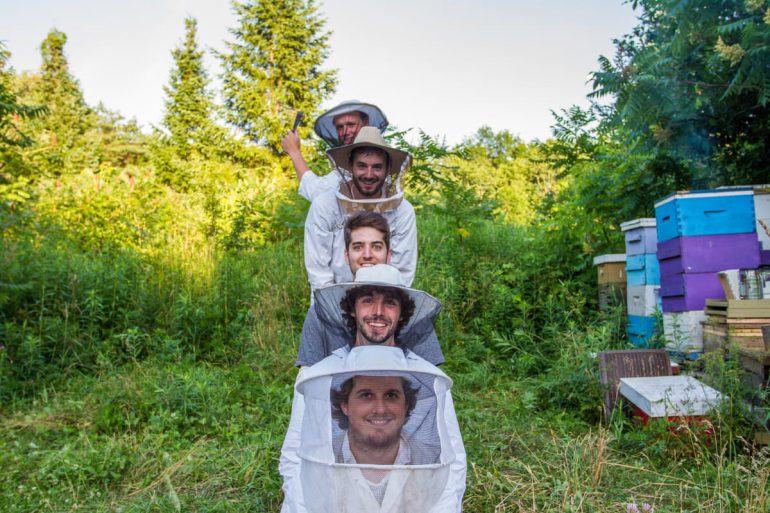As part of a regular series powered by Dell Small Business, BetaKit asks business leaders to share their advice for growing small businesses.
Apiary management may not be the most common tech vertical, but in the case of Montreal startup Nectar, new beekeeping technology was an industry need. The company focuses on developing hardware that collects and analyzes data on the health of beehives, and given the alarming mortality rate of honeybees, this could be a lifesaver when it comes to preserving the world’s agricultural chain.
BetaKit spoke to Nectar’s co-founder Xavier de Briey about what it meant to identify such a unique problem, and how it’s important for entrepreneurs to accept that they’re always learning.
What were some of the biggest struggles you had getting Nectar off the ground in the early days?
For me, the hardest step was understanding the need of our customers in the commercial market. First, we were focusing on the hobby market, but we quickly noticed that it was not tangible – it was hard to define what the hobbyists wanted. So, we decided to switch to the commercial market, helping beekeepers for application in the pollination markets and to help optimize their daily operations.
“It’s very simple: don’t have an ego. Just accept that you’re learning every day, and that your strategy will change many times during the company’s life.”
– Xavier de Briey, Nectar co-founder
The most complex thing – and it’s still a bit complex – was understanding how our solution can be of value to them and their operations. Beekeeping is a very specific area, and it’s not easy to be an expert in it. We’ve been very involved and very close to beekeepers in the field, asking them questions and trying to find and test solutions.
But the hardest part was understanding the need, because we knew they had a problem and there were many difficulties in shaping the solution. That part was a very important phase in the company. Right now, we have something solid, but it’s an iterative process, where the solution or the platform or the hardware’s going to change with time.
How did you validate that your solution was viable?
I think we did everything in parallel. We started with a product hypothesis, and we decided to make our first proof of concept based on the way we were understanding the beekeepers’ situation.
We built the hardware first, then we contacted some beekeepers and asked them if they were willing to do this partner project with us. They authorized us to connect the hives, and the marketing team was on the field in the background, taking written notes on all the random comments they were saying.
We met many beekeepers of many different-sized operations – ones that had between one to 20 hives, and ones that had up to one thousand hives. We had the product hypothesis that we built and tested on the field, and every time we went back to the office, we were rechristening the product definition until we had something.
How does Nectar define its culture and what does it do to foster that culture?
We built our culture in a very horizontal way. My partner and I are the co-founders, and I think we did it very naturally, asking our employees all the time about what they wanted. We always got involved, and we are still doing that right now by always asking questions. We did a first brainstorm together two or three years ago in the living room of one of our colleagues, and we brainstormed on the values of the company; it’s about humility and being humble, and trying to practice that in real time.

My business partner and I are always listening to our employees and trying to find the right way to satisfy everybody. It might sound general, but we’ve created our culture in a very human way, by being aware of the needs of all our employees and trying to find the best comfort zone for them. We don’t have any framework, though. We’re thinking about building a handbook, but it’s not something urgent. We’re just going with the flow.
Is there any advice you’d want to give to your past self?
I think it’s quite simple: if I had to advise another entrepreneur, I’d say to be very humble, and to always listen to people if you don’t know how something works.
Sometimes just a two-hour meeting can directly change the company strategy, so having mentors is super powerful.
Be surrounded by mentors of different skills, and try to find solutions with people better than you. We’ve been involved in many incubator programs, especially in FounderFuel here in Montreal, and at the beginning, they introduced us to mentors in different fields, from product management to fiscal management. Whenever I doubt something, I can just take my phone and call one of them; they help us out a lot. Sometimes just a two-hour meeting can directly change the company strategy, so having mentors is super powerful.
But honestly, it’s very simple: don’t have an ego. Just accept that you’re learning every day, and that your strategy will change many times during the company’s life.
What are your next steps to keep innovating?
The short-term future is validating our solution with the commercial beekeepers that we’re targeting right now in North America. For the next six months, we want to show that the hardware system technology works well, and that the value proposition is getting the most return from the beta testing. We want to improve the solution intuitively for the rest of the year. After that, it’s expanding to Europe, Australia, and South America. We’ve got many potential customers there interested in our solution.
For mid- to long-term, I’d say it’s about looking at the network of all the stakeholders in the beekeeping industry – which is the brokers and the growers – and finding a way to make their interconnection more efficient. It’s still in the ideation process, but it’d be something like installing and setting up a marketplace to make their communication and collaboration more efficient.
In the longer term, it’s also about working really closely with growers and using the data collected from the devices to make yearly predictions. Progressively, we want to reach the older parts of the agriculture chain of supplies – we start with bees, but bees impact the growing of food, so we can advise that industry too.

